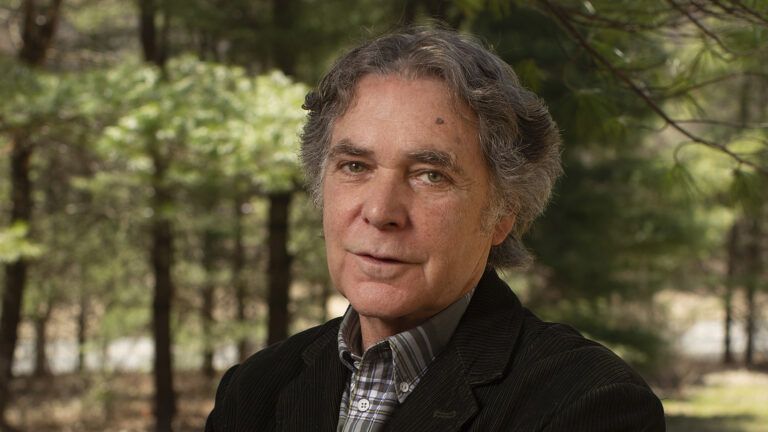Last week, best-selling author, singer and dynamite Bible teacher Sheila Walsh rocked the house at the Houston, Texas stop of the Women of Faith conference, Unwrap the Bible. Walsh taught from John 4:1-26, the story of Jesus and the Samaritan woman at the well, and her message to the 6,000 women in attendance was simple but so profound: “The Good News will never be good news until you know that God knows all of your bad news.”
Like the woman at the well—and every other person on earth—Walsh had some bad news. Twenty-three years ago, she left her job as the co-host of The 700 Club show on Christian Broadcasting Network and checked herself into the psychiatric ward of a hospital. That seemed like bad news because having clinical depression as a Christian, and particularly as a ministry leader, is misunderstood as a problem of faith by many in the religious community, instead of a serious medical issue with many medical solutions.
“If you have a brain tumor, you can show people an x-ray and they can see something physical and they’ll pray for you right away,” Walsh told Guideposts.org.
“But if you have a mental illness, where they cannot see the lack of particular serotonin or whatever you need in your brain to be able to function well, people often put that down to a lack of faith and say, ‘If you’re a believer, you can do all things through Christ that strengthens you.’ You wouldn’t say that to a child who fell off a swing and broke her leg. You wouldn’t say, ‘Get up and walk, because you can do all things through Christ.’”
For Walsh, checking herself into the hospital not only got her the help she needed, it helped her learn how unconditionally loved and accepted she is by her Creator.
On her first morning at the psychiatric ward, her psychiatrist asked her, “Who are you?” Walsh gave the psychiatrist her name. “No, I know your name,” he responded, “but who are you?” The co-host of the 700 club, she answered. “No, no, no. Not what you do. Who are you?”
“I actually don’t know,” she had to confess to him. “And that’s why you’re here,” the psychiatrist told her.
By the time she was ready to leave, her psychiatrist called out to her from his office window, “Sheila! Who are you?” She was finally able to answer: “I’m Shelia Walsh, daughter of the King of Kings.”
Walsh says that really understanding that truth about who we are is what transforms Christians into the kind of people who have a heart for God and for other people.
“It’s not enough to be a 3rd grade teacher or mother of four or somebody’s wife, because all of those things can be gone in a moment. What we need is to hold onto our eternal identity. And when we get that, then I think we are able to transform how we are with other people. But if you’ve never received grace yourself, it’s very hard to extend it to other people. So I think we need to talk less and listen more. We use the Word of God, which is supposed to be healing, we use it as a weapon against one another.”
That’s why Walsh used the woman at the well (an outcast who had been publicly shamed and cast aside by the community) in her Unwrap the Bible message, to help us see each other, ourselves and the struggles we’re dealing with—whether it be mental illness or even sin—through Christ’s eyes.
“I think one of the things we misunderstand about the heart of the Gospel [is that] we categorize sins,” she says. “We look at someone who is a prostitute or someone who has committed adultery and we label them a certain way. We don’t think that our gossip or our overeating or whatever it is is as great a sin. But the reality is, if it had only been one person on the planet and all we ever did was speak one little lie, Christ would still have had to die. Our sin weighs the same before God. And I think if we begin to understand that we’re not the Good News, Jesus is, then I think we’ll be able to open up our hearts.”
“Most of us haven’t been married 5 times [like the woman at the well] but what I saw in her was how Christ pursues us in the midst of our most hopeless moments and loves us back to life. And so that really began to resonate and I actually began to see myself in this woman. Our circumstances were different but our needs were exactly the same.”
Through her renewed relationship with Christ, Walsh was able to not only accept her diagnosis, but to thank God for it and allow her testimony to be a beacon of light for other people who may be struggling in the same way.
“There are other people like me. I’ll be on medication for the rest of my life because my brain simply does not produce enough serotonin for me to function as the woman God called me to be. But what I used to think of as shameful, I no longer do. I take that little pill every morning with a prayer of thanksgiving that God has given help to those of us who need it that way. I always mention it a little bit [when I teach], so that anyone who’s listening can know: You’re not alone.”
And that’s good news.
Sheila Walsh’s new book, Loved Back to Life, is available now..





